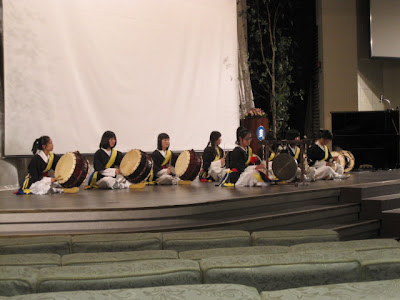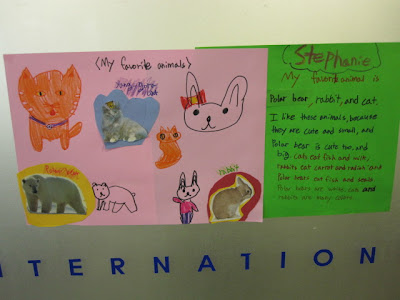I recently read an opinionated article by an expat in
The Korea Times about 'foreigners' gripes' with Korea. This one had to do with a multitude of things, but among them was the issue of kimchi.
First, a bit about the state of journalism in Korea.
There is no such thing as Korean 'journalism', at least as it is published in English. Newspapers here (
The Korea Times and
The Korea Herald) are often filled with subjective perspectives based on little to no sources. Many articles seek to prop up government views that are easy pledges of "I promise to do this . . .", pledges that are never followed up upon. The large conglomerates in Korea (such as Samsung and Hyundai) control the majority of the media, providing little freedom of expression.
Basically put, reading an English-language newspaper in Korea is like . . . no, I'm not going to go with my first analogy . . . reading an automotive advertisement in the Sunday paper in the U.S.: you know it's a load of crap, but sometimes you still read it.
For example, a November 12th article entitled "Supermarkets to Sell Digestive Pills" (
The Korea Times, by Yoon Ja-young) states, in the first sentence, that "Over the counter drugs, such as digestive pills that don't need a doctor's prescription, could soon be sold at supermarkets in the near future . . ."
Clearly, the title of the article, stated as fact, and the first sentence, a hypothetical situation, are in conflict.
This is just one of the many, daily, problems with Korean 'news' reporting, expat or not.
But let's get back to kimchi.
No one, to my knowledge, has ever published a scientific paper or study supporting the purported benefits of kimchi. As I have said before on this blog, I do believe that kimchi has valuable properties, and so I eat it every day. And I understand that it is a source of national pride for Koreans. However, to claim that it can "prevent cancer" (according to
The Korea Times; I asked them for support to that claim in an email, but they never responded) is preposterous, especisally without scientific support.
If you think I am a science nut, forget about it; I am not. I am worried about the impact this cultural belief, fed by the media, will have.
Witness this.
Two days ago, in a class of mine, I asked my students how their school day was. They, as a group, said it was horrible. I asked why. They said it was the day that they had to get the H1N1 vaccine jab . . .
So I told them that I was happy they got the shot, even though it hurt, but that they still had to be careful about transferring the flu: wash hands, and so on.
As a point, I mentioned that tens of thousands of people die in the U.S. every year due to normal influenza strains, and that most countries suffer winter deaths, especially among the young and old, due to influenza.
One student, however, said, "Not in Korea."
I asked her what she meant.
She said, "Korea has kimchi. Kimchi is medicine."
Dangerous thought.





































